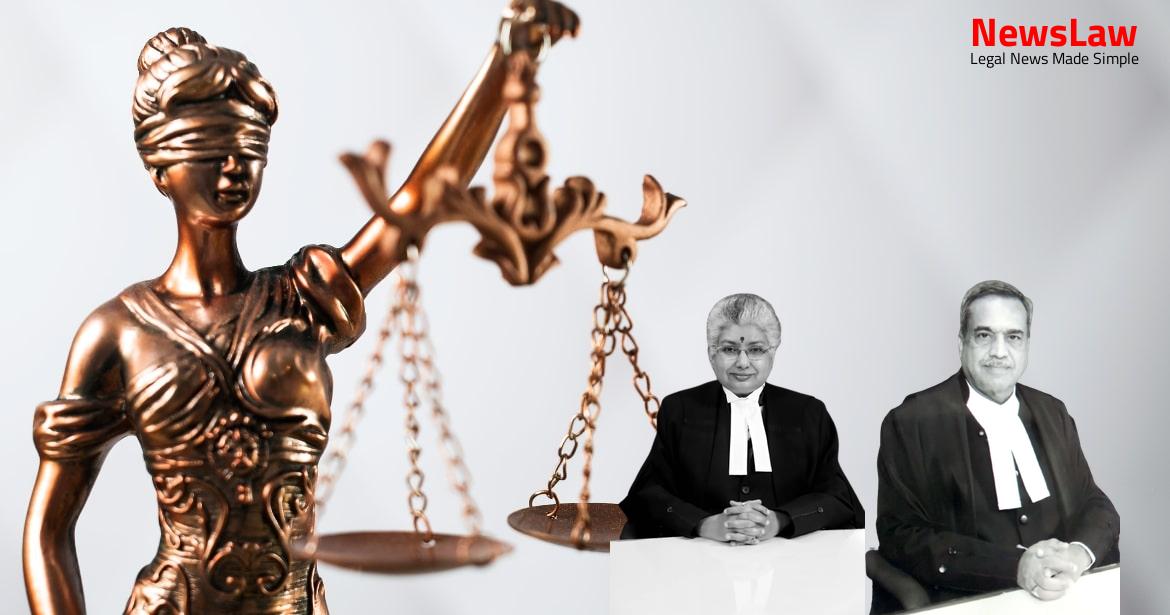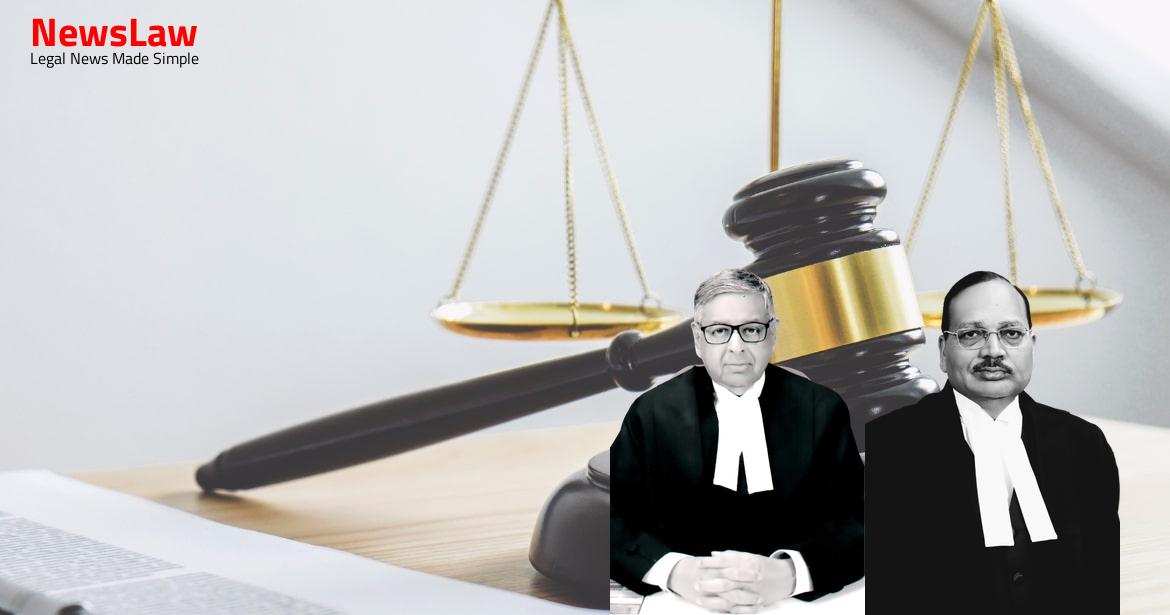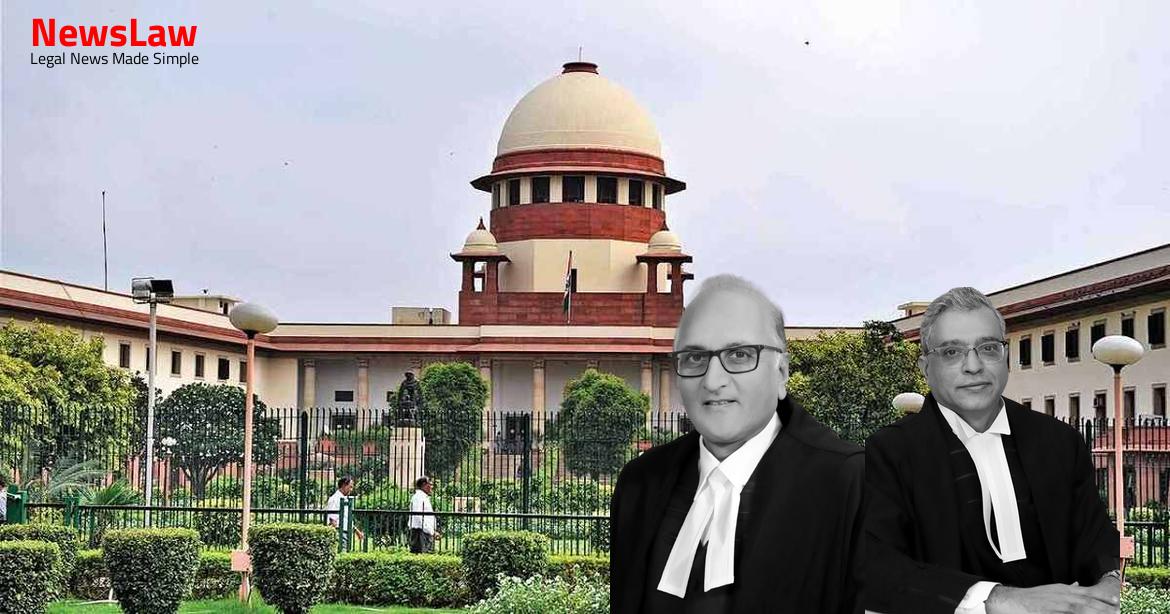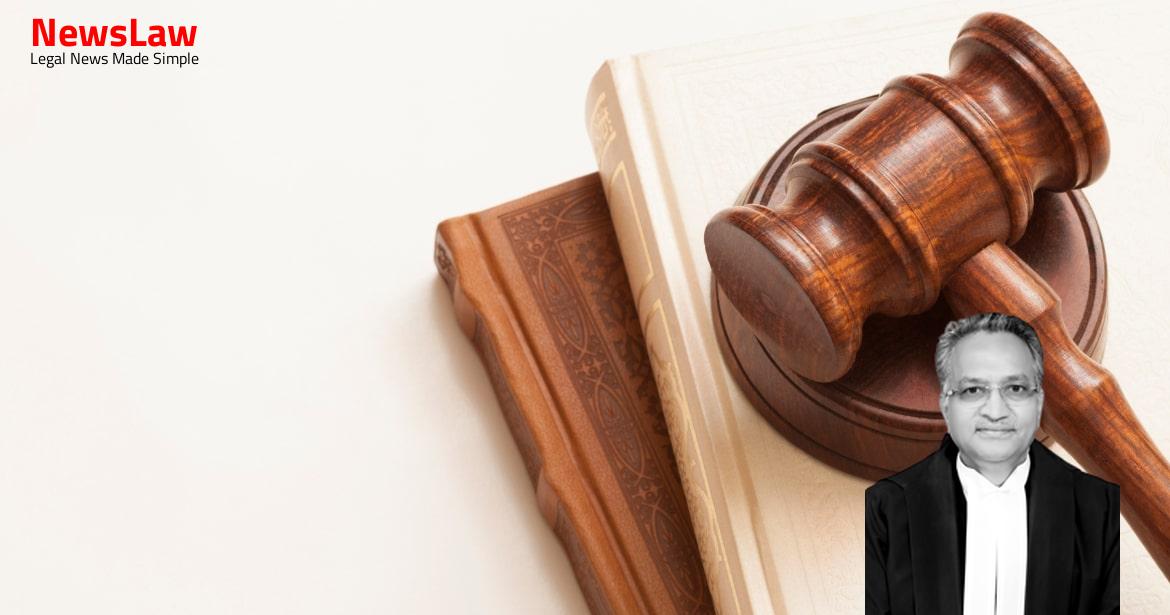Delve into the realm of legal analysis as demonstrated by a recent court decision regarding the restoration of a suit without a written statement. The case sheds light on the importance of procedural rules and the application of legal principles in such scenarios. Stay tuned to unravel the nuances of the court’s reasoning and the significance of adhering to established legal precedents.
Facts
- The original plaintiff filed a petition before the High Court under Articles 226 and 227 of the Constitution of India, challenging the order passed by the First Appellate Court.
- The High Court observed that setting aside the ex-parte judgment and decree alone would not serve the purpose as the defendants needed to file a written statement before leading evidence.
- The High Court set aside the order passed by the First Appellate Court, which allowed the defendants to adduce evidence without addressing the issue of the written statement.
- The suit was initially filed by the original plaintiff in the Court of learned Civil Judge (Junior Division), Jaleswar for declaration and title.
- The original defendant nos. 2 & 3 applied for impleadment in the suit, which was granted.
- Application under Order I Rule 10 of CPC allowed on 20.02.2004.
- Ex-parte judgment and decree passed on 31.08.2004 as defendants failed to file written statement or appear before the Trial Court.
- Defendant nos. 2 & 3 filed application under Order IX Rule 13 of CPC to set aside ex-parte judgment, which was dismissed by Trial Court.
- Original defendant nos. 2 & 3 sought time to file written statement on various dates and remained absent on multiple dates.
- Appeal filed by original defendant nos. 2 & 3 before First Appellate Court.
Also Read: Challenging Legal Presumptions in Negotiable Instrument Cases
Analysis
- High Court set aside the order passed by the First Appellate Court without considering the findings on whether there was a sufficient cause to set aside the ex-parte judgment.
- The High Court based its decision solely on the fact that defendants 2 & 3 did not file a written statement.
- Defendants who did not file a written statement can still participate in the suit proceedings and cross-examine witnesses upon restoration of the suit, as per Sangram Singh case.
- Impugned judgment by the High Court was deemed unsustainable as it did not consider the findings of the First Appellate Court and did not follow the principles established in previous cases.
- The appeal was filed by the original defendant nos. 2 & 3 against the impugned judgment and order.
- First Appellate Court had given specific findings that defendant nos. 2 & 3 had shown sufficient cause for setting aside the ex-parte judgment.
- High Court’s observation that reopening the suit by setting aside ex-parte judgment and decree would be futile due to no written statement filed by defendants is not correct.
- High Court did not comment on the correctness of the First Appellate Court’s order setting aside the ex-parte judgment and decree on merits.
- Impugned judgment and order of the High Court are set aside.
- First Appellate Court’s order setting aside the ex-parte judgment and decree and restoring the suit is restored.
Also Read: Legal Analysis of Admission Irregularities in Educational Institutions
Decision
- Defendant nos. 2 & 3 cannot file a written statement upon restoration of the suit
- Defendant nos. 2 & 3 can participate in the suit, cross-examine witnesses, and make submissions on merits
- No order as to costs in the circumstances of the case
Also Read: Legal Analysis: Driver Appointment Dispute
Case Title: NANDA DULAL PRADHAN Vs. DIBAKAR PRADHAN (2022 INSC 681)
Case Number: C.A. No.-004151-004151 / 2022



